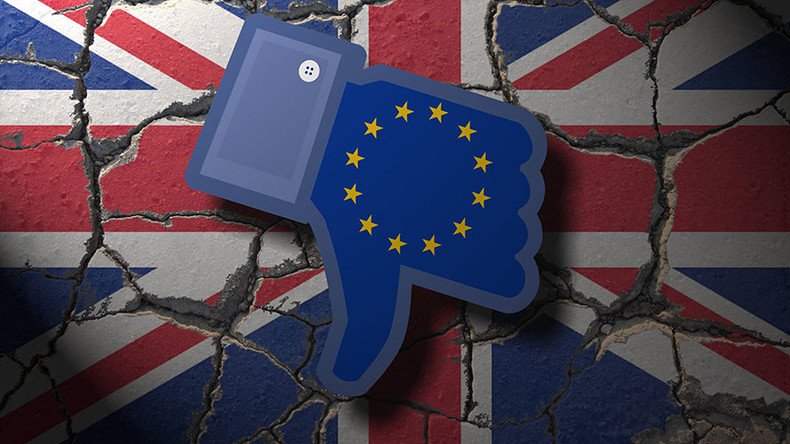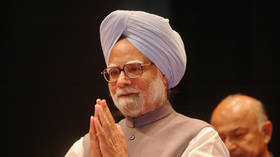Britain in 2030: Brexit & robotics herald inequality, mass unemployment – IPPR

Britain faces a decade of low growth in the wake of Brexit with widening income inequality and thousands of job losses predicted due to the rise of automation, a key report forecasts.
The gloomy analysis by the Institute of Public Policy Research (IPPR) envisages a Britain of 2030 resembling something from dystopian science fiction.
Autonomous vehicles will drive people around the country and artificial intelligence will reach the point where it is more intelligent than 99 percent of humans.
The benefits of technological advances, however, will be offset by the lingering impact of Brexit, the strain of a rapidly ageing population, and a slowing global economy.
May dodges question on whether #Brexit could actually take 10 years instead of 2 years at EU summit pic.twitter.com/CSMw48xt4y
— RT UK (@RTUKnews) December 16, 2016
The report, titled Future Proof: Britain in the 2020s, predicts the average British household will be £1,700 ($2,085) worse off per year than they would have been if the UK had stayed in the EU.
This will be caused in part by the continuing devaluation of the pound sterling, which will drive up prices, hitting low-income people the hardest.
Poor households will see their earnings rise by just two percent over the next 14 years, while the average FTSE 100 chief executive’s pay is predicted to skyrocket to £9.5 million.
The IPPR forecasts Britain’s corporate fat cats will earn 350 times the median income, up from 144 times today.
"#Brexit is short term pain long term gain" says @UKIP leader @paulnuttallukip & urges @theresa_may to use @Nigel_Farage in UK-US relations pic.twitter.com/FAaeyx5uOw
— RT UK (@RTUKnews) December 13, 2016
Meanwhile, the public purse may buckle under the strain of pension spending and the state-owned National Health Service (NHS), as the impact of Brexit reduces the tax base.
The over-65 age group will increase by 15.4 million by 2030, while the working population will increase by just two percent.
Technological advances will bring about a rise in automation, which will see two million jobs go from retail and 600,000 disappear in manufacturing.
“Brexit is the firing gun on a decade of disruption,” the report says.
“Even as what we do and how we work changes the UK is likely to remain trapped in a low-growth, low-interest-rate decade driven by demographic shifts, productivity trends, weak investment, weak labor power, high levels of debt, and the headwinds of a slowing global economy.
Almost half of the British public want #Brexit without MPs getting a vote. Do you agree? pic.twitter.com/iaxHHFgErq
— RT UK (@RTUKnews) December 8, 2016
“Without reform our political and social system will struggle to build a more democratic, healthy society in the decades ahead, even as Brexit accelerates us towards a radically different institutional landscape.”
Tory MEP David Campbell Bannerman, a member of Leave Means Leave, dismissed the report’s predictions.
“No surprises here from such a favourite Blairite thinktank which receives EU funding. This is misery wrapped in humbug,” he said.
“It takes no account of the benefit of UK negotiating free trade deals around the world, of billions saved in deregulation of EU over-regulation, nor of more jobs, better treatment and greater training of the UK workforce once immigration is controlled and the £12 billion net savings from EU contributions reinvested.”












